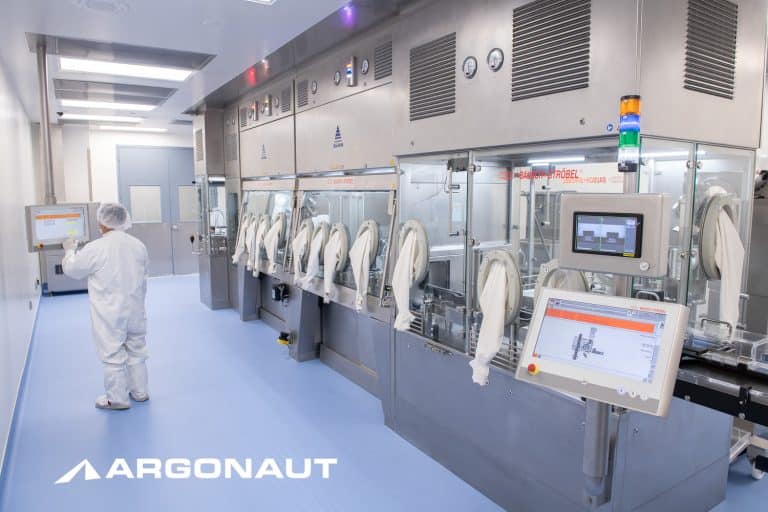Comparing competing biotech manufacturer quotes is the final step in selecting your biotech contract manufacturing organization (CMO). While it may sound straightforward, due to a lack of industry standardization quotes can vary significantly between CMOs. Similar to comparing airlines, with some providers you may be on the hook for hidden costs not shown in the proposal. What are the key areas where quotes can differ, what are tips on evaluating the comparisons, and how can you make an educated decision between them? Asking the right questions will help you choose the best biotech manufacturer quotes for your project.
A true “apples-to-apples” comparison of biotech manufacturer quotes requires thorough knowledge of both costs and supplier capabilities.
What is Included in Biotech Manufacturer Quotes?
The level of turnkey production is perhaps the most common factor causing biotech manufacturer quotes to diverge in price. Biotech CMOs offer varying levels of procurement support and materials management, and the specifics are not always clear. Be sure to ask what is contained within the final price. Are all materials included, or does the quote assume that you will be supplying them? How are minimum order quantities handled during procurement? What inspections are performed on raw materials? If you are providing the materials, how far in advance does the contractor require them and what happens if they aren’t delivered? These are important answers to have when comparing proposal materials costs side-by-side. Opaque “closed book” pricing is sometimes used to hide charges. If your quote does not break out the total pricing to show materials separately, ask your business development representative for the split.
The level of turnkey production is perhaps the most common factor causing biotech manufacturer quotes to diverge in price.
Tech transfer can also be a difficult line item to compare between biotech manufacturing quotes. These charges can fluctuate wildly between companies, yet the document output appears similar on the surface. Why would one company charge double the fee of another? The answer lies in both rigor and ownership. At its core, tech transfer is the process of converting the bill of materials and protocols developed by the client into the biotech CMO’s own system. Tech transfer relies on personnel from multiple departments (including technical operations, Quality Assurance, and Quality Control) to translate and approve the documents. Existing materials specifications and work instructions from the client are used to complete the stringent templates that contract manufacturers rely on. In cases where clients do not have their own internal documentation, the CMO is forced to fill in the blanks with limited available information. When changes are required, CMOs handle these charges differently, so be sure to ask. It is rare that a project does not change between initiation and final production. Whether they are adapting the documents or writing them from scratch, many collective hours are invested into tech transfer. The regulatory standards each contract manufacturer adheres to during document creation will also have a direct impact on the pricing, as will ownership.
Whether they are adapting the documents or writing them from scratch, many collective hours are invested into tech transfer.
Ownership of tech transfer documentation is not straightforward, and should not be assumed to be included in the biotech manufacturing quotes. While the biotech CMO is performing the labor to write and format the documents, the process specified within is provided by the client. In cases where formal documentation was not provided, tech transfer produces documents with significant value for the client to retain. Who should own the output? Some contract manufacturers retain ownership of final bill of materials (BOMs), material specifications, and work instructions, but others give ownership to the client. When comparing biotech contract manufacturer tech transfer line items, be sure to consider ownership as a factor.
Who should own the output? Some contract manufacturers retain ownership of final bill of materials (BOMs), material specifications, and work instructions, but others give ownership to the client.
What is Missing in the Biotech Manufacturer Quotes?
When comparing biotech manufacturer quotes, it is important to keep in mind the manufacturing project itself is just one piece of the puzzle. Does your preferred biotech CMO offer the supporting services you need (such as analytical quality control testing), or will you need to manage those yourself? If all of the services you need are not offered by a CMO, be sure to factor in the additional costs to source and manage those yourself when considering their proposal.
Does your preferred biotech CMO offer the supporting services you need, or will you need to manage those yourself?
If biotech manufacturer quotes do not fully meet your requirements but the CMO is willing to expand their capabilities to match, these costs may need to be included in the total pricing. Capabilities expansion is a broad category that can vary wildly in total expense. Simple additions like a new ice bucket for 4⁰C filling projects may be inexpensive, but larger equipment and/or hiring new resources can quickly add up. Will the CMO foot the bill or will your company be asked to share the costs? Find this out before making your CMO selection, as the costs will need to be included in your evaluation.
It may seem strange to question regulatory claims, but always ask for confirmation of your contract manufacturer’s certifications and registrations when evaluating. Registrations can expire, and CMO websites are not always up to date. Vague wording like “ISO certified” instead of specifying ISO 13485 can be a red flag as well. If the pricing of one contract manufacturer’s proposal is suspiciously low compared to others, make sure they are all meeting the same regulatory standards.
Always ask for confirmation of your contract manufacturer’s certifications and registrations when evaluating.
Which CMO is the Best Fit for My Project?
When choosing between biotech manufacturer quotes, total cost is important but should not necessarily be the most important decision factor. It is also critical to consider whether the CMO’s overall capabilities, partnership style, and delivery timelines match your needs. During your site visit, be on the lookout for intrinsic factors that can influence success. Are business development representatives knowledgeable and enthusiastic about the company? Is the facility clean and well-organized? Do technicians appear skilled and gowned correctly for the level of work? Your gut feel of overall quality is an important consideration that cannot be gleaned just from the written proposal.
It is also critical to consider whether the CMO’s overall capabilities, partnership style, and delivery timelines match your needs.
The biotech contract manufacturer’s pricing is often linked to its tiers of quality or stringency. Higher standards and increased regulatory compliance mean more expenses for the CMO, in turn meaning greater overhead costs in your proposal. You will need to determine the regulatory needs and risk tolerance of your project in order to find the right tradeoff between cost and quality. Selecting a proposal on cost alone may eliminate your best-fit supplier. It is possible for a good contract manufacturer to work with you on reducing pricing over time or as volumes increase.
It is possible for a good contract manufacturer to work with you on reducing pricing over time or as volumes increase.
Comparing biotech manufacturing quotes may appear similar on the surface, but hidden expenses and exclusions can quickly add up. A true “apples-to-apples” comparison of biotech manufacturing quotes requires thorough knowledge of both costs and supplier capabilities. Be sure to ask your business development representative for the itemized costs of any necessary additions, which allows you to compare quotes on a level playing field. You may find the total cost changes significantly when all requirements are factored into the proposal. When selecting a biotech contract manufacturer quote, asking the right comparison questions is the pathway to success.
When selecting a biotech contract manufacturer quote, asking the right comparison questions is the pathway to success.
Still can’t decide? Contact Argonaut to get the contract manufacturing answers you need.



